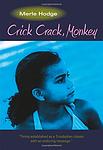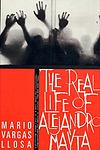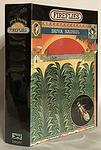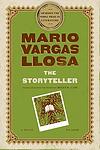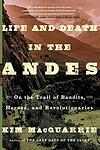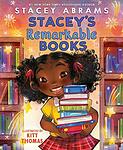The Greatest Trinidadian, Peruvian "Fiction" Books Since 1950
Click to learn how this list is calculated.
This list represents a comprehensive and trusted collection of the greatest books. Developed through a specialized algorithm, it brings together 300 'best of' book lists to form a definitive guide to the world's most acclaimed books. For those interested in how these books are chosen, additional details can be found on the rankings page.
Genres
Countries
Date Range
Reading Statistics
Click the button below to see how many of these books you've read!
Download
If you're interested in downloading this list as a CSV file for use in a spreadsheet application, you can easily do so by clicking the button below. Please note that to ensure a manageable file size and faster download, the CSV will include details for only the first 500 books.
Download-
1. A House for Mr. Biswas by V. S. Naipaul
The novel narrates the life of Mr. Biswas, a man of Indian descent living in Trinidad, who struggles against poverty and adversity to achieve personal independence and to build a home for himself and his family. Born into a poor family and married into an oppressive one, he constantly strives for autonomy and identity against the backdrop of post-colonial Trinidad. His dream of owning his own house becomes a symbol of his desire for self-determination and respect in a society that often denies him both.
-
2. A Bend in the River by V. S. Naipaul
"A Bend in the River" is a novel that follows an Indian man, Salim, who moves from the East Coast of Africa to the heart of the continent to open a store in a small, remote town at a bend in the river. The book explores the changes that occur in the town as it evolves from a sleepy outpost to a bustling city. It also delves into Salim's personal struggles and the challenges he faces in adapting to a rapidly changing society, all set against the backdrop of post-colonial Africa.
-
3. The War of the End of the World by Mario Vargas Llosa
The book is a historical novel that recounts the War of Canudos, a conflict in late 19th-century Brazil over religious fanaticism, political instability, and social inequality. The story is centered around an apocalyptic movement led by a charismatic, messianic figure who convinces the poor and downtrodden to rise up against the Brazilian government, leading to a brutal and bloody conflict. The book explores themes of faith, power, poverty, and the destructive potential of fervent belief.
-
4. The Lonely Londoners by Sam Selvon
"The Lonely Londoners" is a novel that explores the lives of a group of West Indian immigrants living in London during the 1950s. The narrative follows the characters as they navigate the challenges of racism, poverty, and isolation in a new and unfamiliar environment. Despite their hardships, the characters also experience moments of camaraderie and humor, providing a nuanced portrayal of the immigrant experience.
-
5. Conversation in the Cathedral by Mario Vargas Llosa
Set in mid-20th century Peru, "Conversation in the Cathedral" is a complex narrative that explores the corruption, decay, and turmoil of the society under the dictatorial rule of Manuel A. Odria. The story mainly revolves around two characters - a wealthy newspaper owner's son and his family's former chauffeur. Their chance meeting leads to a lengthy conversation that unravels the intricate web of political and personal corruption, disillusionment, and lost dreams in their lives and in their country. The novel is a profound examination of the power dynamics, societal decay, and the human condition in a politically oppressive environment.
-
6. The Feast of the Goat: A Novel by Mario Vargas Llosa
"The Feast of the Goat" is a historical novel set in the Dominican Republic during the rule of dictator Rafael Trujillo. It follows the story of Urania Cabral, a successful lawyer returning to her homeland after 30 years of self-imposed exile, and her struggle to confront the traumatic past that led to her departure. The narrative alternates between Urania's personal story and the brutal regime of Trujillo, providing a stark depiction of political tyranny and its effects on individual lives.
-
7. The Time of the Hero by Mario Vargas Llosa
"The Time of the Hero" is a novel set in a military academy in Lima, Peru, where a group of cadets try to maintain their individuality and resist the dehumanizing military routine. The story revolves around a stolen exam paper, the ensuing investigation, and the brutal fallout. The novel explores themes of power, corruption, and the struggle for identity within a rigid and oppressive system, offering a critical look at the military institution and its effects on society.
-
8. In a Free State by V. S. Naipaul
"In a Free State" is a collection of three short stories and a prologue and epilogue, portraying the realities of post-colonial life and the struggles of individuals caught between their native culture and the imposed Western values. The narratives span across India, Egypt, Washington D.C., and Africa, each exploring the themes of displacement, identity crisis, and cultural conflict. The book provides a profound examination of the human condition, the concept of freedom, and the complexities of power dynamics in a post-colonial world.
-
9. Aunt Julia and the Scriptwriter by Mario Vargas Llosa
The novel is a semi-autobiographical tale of a young man in Peru who falls in love with his divorced aunt, Julia, while working at a radio station. Their scandalous romance unfolds amidst the backdrop of a chaotic radio station run by a brilliant but unstable Bolivian scriptwriter who churns out daily soap operas. The narrative alternates between the protagonist's real life and the melodramatic world created by the scriptwriter, blending reality and fiction in a humorous and poignant exploration of love and creativity.
-
10. Deep Rivers by José María Arguedas
"Deep Rivers" is a novel that follows the life of a young boy who is caught between the Spanish and indigenous cultures of Peru. The protagonist is sent to a Catholic boarding school, where he experiences the harsh realities of social and racial divisions within the country. As he navigates these challenging circumstances, he develops a deep connection with the indigenous Andean culture and its spiritual relationship with nature. The novel is a profound exploration of identity, culture, and the struggle of indigenous peoples in a colonized society.
-
11. A World for Julius by Alfredo Bryce Echenique
"A World for Julius" follows the life of Julius, a young boy from a wealthy, aristocratic family in Peru. The novel is a biting social critique of the Peruvian upper classes, as seen through the eyes of Julius, who is often at odds with his family's values and lifestyle. The narrative explores themes of class, privilege, and the struggle for identity in a world dominated by wealth and social status.
-
12. Crick Crack, Monkey by Merle Hodge
This novel is a coming-of-age story set in Trinidad, exploring themes of colonialism, identity, and cultural conflict through the eyes of a young girl named Tee. As she navigates the complexities of her Afro-Trinidadian heritage and the imposed British colonial education system, Tee is torn between the warmth and vibrancy of her working-class upbringing with her aunt Tantie and the strict, anglicized environment of her middle-class aunt Beatrice. The narrative delves into the psychological impact of cultural dislocation and the struggle to find a sense of belonging in a society deeply fractured by class and race.
-
13. Guerrillas by V. S. Naipaul
"Guerrillas" is a novel set on a Caribbean island, exploring themes of race, politics, and power. The plot follows a group of characters, including a disillusioned Englishwoman, a struggling black activist, and a charismatic but dangerous mixed-race man who leads a band of guerilla fighters. As the tension and violence escalate, the novel delves into the complexities of post-colonial society and the struggle for identity and self-determination.
-
14. Milkman by Anna Burns
Set during The Troubles in Northern Ireland, this novel follows an unnamed 18-year-old protagonist who is pursued by a powerful, older man known only as the Milkman. Despite her attempts to avoid him and maintain a low profile in her community, rumors spread about their supposed affair, leading to increased scrutiny and isolation. The book explores the protagonist's struggle to maintain her individuality amidst political and social turmoil, while also dealing with the pervasive threat of violence and the power of gossip in a close-knit community.
-
15. The Real Life of Alejandro Mayta by Mario Vargas Llosa
This novel revolves around a failed Peruvian revolution and the man who attempted to lead it, Alejandro Mayta. The story is told from the perspective of a novelist who is researching Mayta's life and the events surrounding the failed uprising. The narrative oscillates between the present and the past, unraveling the complex threads of Mayta's personal history, political beliefs, and the broader socio-political context of Peru. The novel explores themes of truth, fiction, and the blurry lines between them.
-
16. Fireflies by Shiva Naipaul
This novel explores the complexities of post-colonial Trinidad through the lens of the protagonist's tumultuous family life and his arranged marriage. Set against a backdrop of societal change and personal disillusionment, the narrative delves into themes of identity, tradition, and the search for meaning in a rapidly transforming world. The protagonist's journey is marked by his struggle to reconcile his ambitions and desires with the expectations placed upon him by his family and community, ultimately presenting a poignant critique of the societal norms and cultural heritage that both bind and divide the characters. Through vivid storytelling and rich character development, the book offers a nuanced examination of the human condition within a specific cultural context.
-
17. The Storyteller by Mario Vargas Llosa
"The Storyteller" is a novel that explores the tension between modern civilization and indigenous culture. The narrative alternates between two perspectives: one of a successful documentary filmmaker in Italy who is haunted by his past in Peru, and the other of an indigenous storyteller from an Amazonian tribe. The filmmaker recalls his college friend, who was fascinated by the indigenous cultures of Peru and disappeared into the Amazon rainforest. As the story unfolds, it becomes increasingly apparent that the indigenous storyteller and the filmmaker's lost friend are one and the same. This revelation leads to a profound examination of the effects of cultural assimilation, the value of tradition, and the power of storytelling.
-
18. The Wine of Astonishment by Earl Lovelace
"The Wine of Astonishment" is a gripping narrative that explores the struggle of a small, rural community in Trinidad during the early 20th century, as they grapple with the effects of colonialism, World War II, and the prohibition of their spiritual practice, the Shouter Baptist faith. The story is told through the eyes of Eva, a strong-willed matriarch, and her husband, Bee, the spiritual leader of the community. The novel examines themes of resilience, faith, and the fight for cultural and religious freedom.
-
19. Death In Andes by Mario Vargas Llosa
"Death in the Andes" is a haunting and atmospheric novel set in the remote Andean village of Naccos, where two soldiers are sent to investigate the mysterious disappearance of three men. As they delve deeper into the village's secrets, they uncover a dark history of violence, political turmoil, and superstition. Blending elements of mystery, political commentary, and magical realism, this gripping tale explores the complexities of human nature and the impact of Peru's turbulent past on its present.
-
20. The Jumbies by Tracey Baptiste
"The Jumbies" is a captivating and enchanting tale that follows the adventures of Corinne La Mer, a brave and curious young girl living on the island of Trinidad. When a mysterious and powerful jumbie threatens her village, Corinne must use her wit and courage to protect her family and friends. With its rich Caribbean folklore and vivid descriptions, this book takes readers on a thrilling journey filled with magic, friendship, and the triumph of good over evil.
-
21. The Bad Girl by Mario Vargas Llosa
The novel follows the life of Ricardo Somocurcio, a man from Lima, Peru, who becomes infatuated with a mysterious girl he meets in his youth. This girl, who constantly reinvents her identity, reappears throughout his life in various guises and names, leading him on a tumultuous and passionate journey that spans continents and decades. As Ricardo pursues a career as a translator and moves through different countries, he encounters the enigmatic woman in various circumstances, each time falling under her spell despite the pain and complexity she brings into his life. The story is a reflection on love, obsession, and the transformative power of relationships over time.
-
22. Golden Child by Claire Adam
Set in rural Trinidad, the book tells the story of a family with twin boys, Peter and Paul. Peter is academically gifted, while Paul is considered to be slower due to a complication at birth. When Paul goes missing, their father is faced with a terrible choice that highlights the stark contrasts between his sons. The novel explores themes of family, sacrifice, and the lengths a parent will go to protect their child.
-
23. The Chip Chip Gatherers by Shiva Naipaul
"The Chip Chip Gatherers" is a novel that explores the complex dynamics of a multi-generational Indo-Trinidadian family, the Khojas, living in Trinidad. The story revolves around the ambitions and struggles of the family patriarch, Egbert, as he attempts to rise above his impoverished beginnings and establish a successful life for his family. However, his efforts are constantly undermined by family squabbles, cultural tensions, and the harsh realities of post-colonial Trinidad. The novel provides a stark portrayal of the struggles faced by immigrants and the destructive power of envy and resentment within a family.
Reading Statistics
Click the button below to see how many of these books you've read!
Download
If you're interested in downloading this list as a CSV file for use in a spreadsheet application, you can easily do so by clicking the button below. Please note that to ensure a manageable file size and faster download, the CSV will include details for only the first 500 books.
Download










